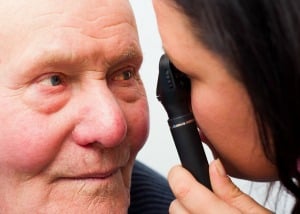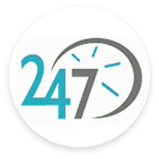Cataracts, a frequent age-related eye condition, is defined by the clouding of the eye’s natural lens, resulting in vision impairment. Seniors, who are at a higher risk due to aging and other factors, should undergo testing to ensure an accurate diagnosis. This can be scary, however, which means they will need support throughout the process. Home care services and loved ones can provide this support by educating them about the tests used to detect cataracts and other related issues.
Detailed Medical and Visual History
The diagnosis process begins with an extensive evaluation of the senior’s medical and visual history.
This step includes:
Symptom Assessment: Seniors are asked about particular symptoms, including fuzzy vision, glare sensitivity, difficulties seeing at night, or seeing halos around lights.
Lifestyle Impact: Doctors will ask about how vision problems affect daily activities, including reading, driving, and recognizing faces.
Medical Background: Previous ocular injuries, surgeries, systemic illnesses, such as diabetes, and prescription use will all be explored when reviewing the senior’s cataract risk. Both home care and loved ones can help seniors collect this information to ensure accurate data.
Visual Acuity Test
A visual acuity test examines how well a senior can see at different distances. It’s a simple yet necessary tool that starts with asking them to read letters or symbols on an eye chart. Doing so helps determine visual clarity and whether corrective lenses are required in conjunction with cataract treatment.
Slit-Lamp Examination
A slit-lamp test provides a magnified picture of the eye’s anatomy by shining a narrow beam of light into the eye, allowing the doctor to examine the cornea, iris, lens, and anterior chamber in greater detail. This test detects early lens clouding and other anomalies that may signal cataracts or concomitant eye disorders.
Retinal Examination
The retinal exam takes a good look at the back of the eye to assess the retina and optic nerve. First, eye drops are used to dilate the pupils, which improves the vision of internal eye structures. Second, the doctor uses an ophthalmoscope to look for cataracts and rule out other possibilities such as retinal detachment or macular degeneration. The dilation can last for some time and be frustrating. Home care can support seniors during this process and make sure they’re safely transported to and from the appointment.
Glare and Contrast Sensitivity Test
Cataracts can make it hard to see in low-light circumstances. Glare and contrast tests measure things like glare sensitivity, which refers to how well seniors see when bright lights are shone into their eyes. Contrast sensitivity is also explored, which is the ability to differentiate between shades of gray. A reduced ability may point to cataracts.

Why Early Diagnosis Matters
Early detection of cataracts can greatly enhance treatment success. This is why regular eye exams are essential for seniors, even if no symptoms are evident. Plus, prompt diagnosis not only improves eyesight but also lowers the chance of accidents or falls caused by poor vision.
Cataract diagnosis in seniors requires a mix of historical documentation, visual tests, and thorough examinations. These tests help ophthalmologists determine the severity of a cataract and plan appropriate treatments, such as prescription lenses or surgery. By supporting seniors during the process, home care can help them maintain their quality of life.
Sources:https://www.mayoclinic.org/diseases-conditions/cataracts/diagnosis-treatment/drc-20353795
https://www.healthinaging.org/a-z-topic/cataracts/tests
https://www.medicalnewstoday.com/articles/cataract-diagnosis
If you are considering hiring a Home Care Service that is dedicated to the senior care market, contact 24/7 Coastal Contact today at (251) 260-0226.
Let us show you how and why we are different from any other service you may have tried in the past. Our team approach is the standard that sets us apart from the rest.
Prior to establishing 24/7 Coastal Contact, Ms. King worked for 30 years in the health care industry. Her experience began providing direct patient care. Eventually, she transitioned into home care and home infusion, then acquired her HCS-D certification as a Home Health specialty coder where she learned about the administrative burden facing Home Health and Home Care providers.
It became clear that after-hours customer service was a major toll home care industry and it was with this need in mind that 24/7 Coastal Contact was founded. Since 2018, 24/7 Coastal Contact has grown explosively. Now, we provide service to over 40 agencies in over 24 states with a 95% retention of service rate.
- How Home Care Helps Seniors Improve Their Diet While Aging in Place - April 15, 2025
- Celebrating Ebony & Her 3-Year Workiversary - April 4, 2025
- After-Hours Answering Service Provides Cost-Effective Customer Service 24/7 - April 1, 2025



